Data Weather
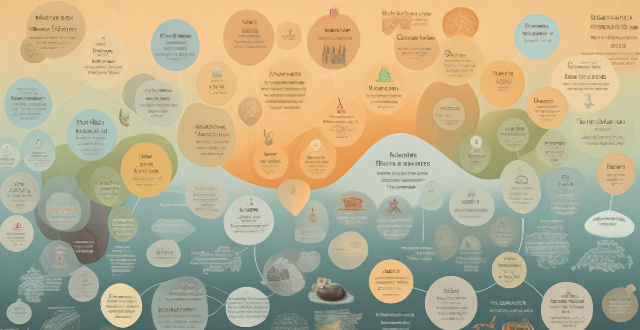
How does climate data analysis contribute to our understanding of extreme weather events ?
Climate data analysis is essential for understanding extreme weather events. It allows scientists to identify trends, make predictions, and assess the impacts of these events on people and ecosystems. Key aspects include long-term data collection, statistical analysis, modeling techniques, vulnerability assessments, and public education. This comprehensive approach helps us prepare for and mitigate the effects of extreme weather, ultimately enhancing our resilience and adaptability in a changing climate.

Can climate data analysis accurately predict future weather patterns ?
Climate data analysis, utilizing sophisticated climate models based on physical laws and accounting for complex interactions within the Earth system, plays a crucial role in predicting future weather patterns. These models allow scenario-based projections and ensemble forecasting to account for uncertainties. While they are continuously improved as new scientific understanding emerges, it's important to distinguish between weather forecasting (short-term events) and climate prediction (long-term trends). Climate prediction involves more variables, broader trends, external forcings, and wider confidence intervals compared to weather forecasting. However, climate models face uncertainties such as natural variability, model discrepancies, emission scenarios, feedback mechanisms, and regional differences. Despite these challenges, climate science has made progress in predicting aspects like global warming, sea level rise, extreme weather events, regional changes, and carbon cycle responses. In conclusion, climate data analysis can provide valuable insights into potential future climate patterns but comes with inherent uncertainties, especially in forecasting specific weather events far into the future. Ongoing advancements in climate science aid in developing informed policies and adaptation strategies.

How do scientists study and analyze extreme weather events ?
Scientists study and analyze extreme weather events using various methods, including data collection from meteorological stations, satellite imagery, radar, lidar, climate records, and paleoclimate data. They also use numerical weather prediction models, ensemble forecasting, global circulation models, and regional climate models for simulations and predictions. Statistical methods, trend analysis, attribution studies, synoptic climatology, and teleconnections are employed for analysis. Collaboration and public outreach play crucial roles in sharing information and findings.

What is the difference between weather forecasting and climate prediction ?
Weather forecasting and climate prediction are two related but distinct fields with different scopes, timescales, and methodologies. Weather forecasting focuses on short-term predictions for specific locations, while climate prediction looks at long-term trends and patterns globally.
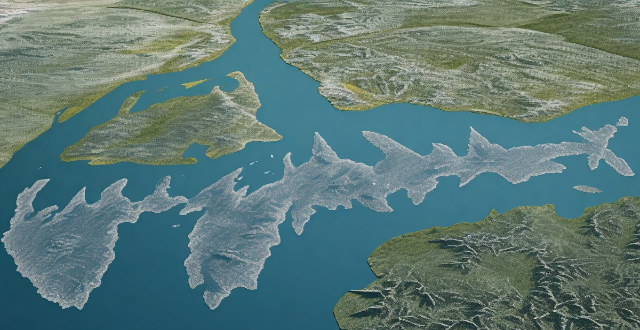
How do climate skeptics explain extreme weather events in the context of climate change ?
Climate skeptics present alternative explanations for extreme weather events, often challenging the scientific consensus on climate change. They argue that such events are part of natural variability, unrelated to human activities. Skeptics question the interpretation of climate data, suggesting that any increase in extreme weather is not statistically significant and that climate models have uncertainties. They propose alternative causes for weather patterns, such as land use changes and industrial pollution. Furthermore, they emphasize human resilience and adaptation through technology and economic growth as key to dealing with extreme weather. Overall, climate skeptics offer a range of arguments that differ from the prevailing scientific view on climate change.

How can we predict and prepare for extreme weather events ?
Predicting and preparing for extreme weather events is a critical aspect of modern society. With advancements in technology and scientific research, we now have the ability to forecast these events with greater accuracy than ever before. However, predicting and preparing for extreme weather events requires a multi-faceted approach that involves both scientific knowledge and practical preparation. In this article, we will explore some of the key ways in which we can predict and prepare for extreme weather events.

What measures can be taken to mitigate the impacts of extreme weather events ?
Mitigating the Impacts of Extreme Weather Events Extreme weather events can be devastating, but their impact can be mitigated through preparedness, response, and adaptation strategies. Preparedness measures include early warning systems, infrastructure resilience, and community planning. Response measures involve emergency services and information management. Adaptation measures encompass land use policies, sustainable practices, and ecosystem restoration. By implementing these measures, communities can become more resilient to extreme weather events and reduce the risk to human life and economic impact.

What is the difference between weather and climate ?
This text defines and differentiates between weather and climate. Weather is described as a short-term phenomenon, characterized by its variability, localized nature, and influence on daily activities. In contrast, climate is defined as a long-term pattern, distinguished by its stability, regional scope, and impact on ecosystems and agriculture. The text emphasizes the importance of understanding these differences for decision-making in various aspects of human life.
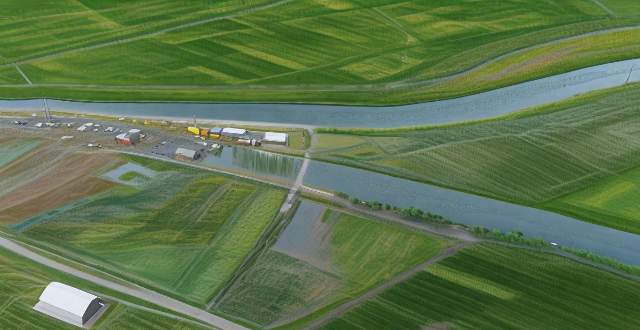
How can climate data analysis help in disaster risk reduction and management ?
Climate data analysis is crucial for disaster risk reduction and management. It helps identify high-risk areas, predict future weather patterns, develop mitigation strategies, and enhance disaster response and recovery efforts. By analyzing past and current climate data, we can better prepare for and respond to natural disasters such as floods, hurricanes, wildfires, and droughts.

How accurate are climate models in predicting future weather patterns ?
Climate models are complex mathematical representations designed to predict future weather patterns. The accuracy of these models is influenced by factors such as data quality, model complexity, and uncertainty in future emissions. Limitations include less accurate short-term predictions and uncertainty in model projections. Potential improvements include better data collection, advances in modeling techniques, and collaboration across disciplines.

How does climate change influence weather patterns and extreme weather events ?
Climate change significantly affects weather patterns and increases the frequency and intensity of extreme weather events. It influences global wind patterns, changes in ocean currents, and variations in seasonal patterns. Moreover, it leads to more frequent and intense heatwaves, severe storms and hurricanes, extreme precipitation events, and droughts. These impacts highlight the urgent need for action to mitigate climate change and adapt to its effects.

How do weather conditions affect building safety during construction ?
The text discusses the impact of various weather conditions on building safety during construction. It highlights the risks associated with extreme heat, cold weather, rain and water, strong winds, snow and ice, and lightning and thunderstorms. The conclusion emphasizes the importance of monitoring weather forecasts and adjusting working procedures to ensure worker safety.
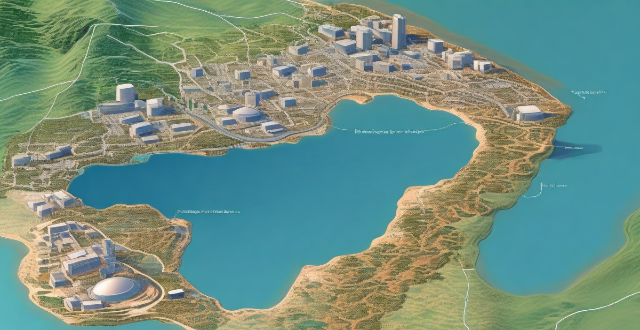
Can climate variability be predicted accurately ?
Climate variability refers to the fluctuations in temperature, precipitation, and other weather patterns over time. While it is difficult to predict climate variability with complete accuracy, scientists have made significant progress in understanding and forecasting these changes using a combination of observational data, climate models, and other tools. Factors contributing to climate variability include solar radiation, volcanic eruptions, human activities, ocean circulation, and El Niño Southern Oscillation (ENSO). Tools used for climate prediction include global climate models (GCMs), remote sensing, palaeoclimatology, weather stations and buoys, and reanalysis data. Continued research and advancements in technology will help improve our ability to predict future climate scenarios and inform decision-making related to climate change adaptation and mitigation strategies.

What are some examples of recent extreme weather events ?
This article discusses recent examples of extreme weather events that have caused significant damage to human life, property, and the environment. These include Hurricane Ida (2021), Australian Bushfires (2019-2020), California Wildfires (2020), European Heatwave (2019), Japanese Typhoon Hagibis (2019), and Indian Cyclone Amphan (2020). The article concludes by emphasizing the need for individuals, communities, and governments to take action to mitigate the effects of these events and adapt to changing weather patterns.

How does weather affect radio communication interference ?
The text discusses how weather conditions can impact radio communication interference. It lists various types of weather such as rainfall, fog, thunderstorms, snow, sunspots, wind, and humidity and explains how each type can affect radio signals. For example, raindrops can absorb and scatter radio waves, reducing the strength of the signal, while thunderstorms can produce static discharges that interfere with nearby frequencies. The text emphasizes the importance of considering these factors when planning and managing wireless communications networks.

How does climate variability affect global weather patterns ?
The impact of climate variability on global weather patterns is substantial, affecting temperature, precipitation, wind patterns, and extreme weather events. Key influences include El Niño and La Niña phases, monsoon systems, altered rainfall distribution, jet stream variations, tropical cyclones, heatwaves, cold spells, storms, floods, and droughts. Long-term climate trends like global warming also significantly affect weather patterns. Understanding these interactions is crucial for predicting future conditions and addressing climate-related challenges.
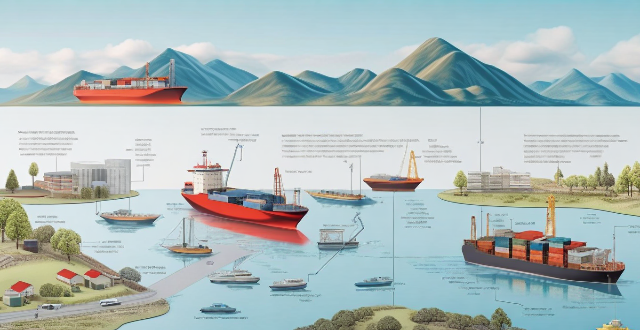
How can climate risk management help mitigate financial losses due to extreme weather events ?
Climate risk management is crucial for reducing financial losses from extreme weather. It involves identifying, assessing, and prioritizing climate-related risks, and developing strategies to manage and adapt to these risks. Organizations can reduce their exposure to high-risk areas, enhance resilience and preparedness, diversify risks, and invest in insurance and contingent finance mechanisms. By implementing effective climate risk management practices, organizations can mitigate the impact of extreme weather events on their operations and finances.
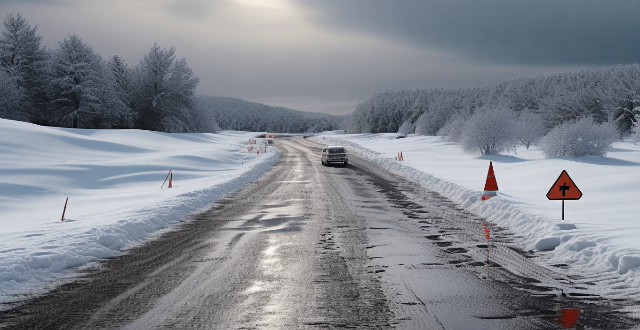
How does weather affect traffic safety ?
Weather conditions significantly impact traffic safety, with adverse weather increasing the risk of accidents. Understanding how different weather conditions affect driving abilities and taking necessary precautions are essential for ensuring safety. Rain, snow, ice, fog, and wind all pose unique challenges to drivers, such as reduced visibility and slippery roads. To drive safely in these conditions, maintain vehicle readiness through regular maintenance and adjust driving habits by slowing down and increasing following distance. Additionally, being prepared for emergencies with an emergency kit and planning your route can further enhance safety. By prioritizing safety and adapting to weather conditions, drivers can significantly reduce the likelihood of accidents and ensure safer journeys for everyone on the road.
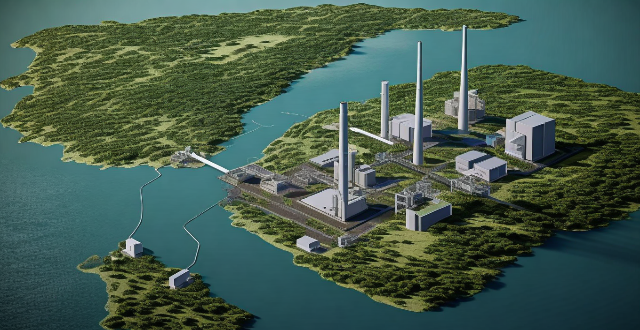
How accurate is climate data analysis in predicting climate change ?
Climate data analysis is crucial for predicting climate change, but accuracy depends on factors like data quality, models used, and assumptions about future emissions. Data collection from satellites, weather stations, and ocean buoys can be affected by equipment malfunction, human error, and natural variability. Scientists use complex computer models to analyze this data, which must accurately represent interactions between different components of the climate system. Predictions also depend on assumptions about future greenhouse gas emissions based on scenarios of population growth, economic changes, energy use, and technological development. Despite these challenges, scientists continue to improve understanding of the climate system and develop more accurate predictions.

What is data privacy ?
Data privacy is the protection of personal information from unauthorized use. It's important for individual rights, building trust, legal compliance, and risk mitigation. Principles include data minimization, anonymization, encryption, transparency, consent, access control, retention, integrity, and accountability. Best practices involve regular audits, employee training, updating policies, secure systems, and response plans for data breaches.

What impact do extreme weather events have on consumer purchasing habits ?
Extreme weather events, such as hurricanes, floods, and heatwaves, significantly impact consumer purchasing habits. These changes in buying behavior are often driven by necessity, fear, and the desire to be prepared for future events. The text discusses the various ways extreme weather events can influence what and how consumers purchase. It also highlights the need for businesses and retailers to adapt to meet the changing demands and priorities of their customer base.

How do electric cars perform in cold weather conditions ?
Electric cars, while eco-friendly and cost-efficient, face challenges in cold weather, particularly affecting battery performance and range. Strategies like preconditioning and using warm garages can mitigate these issues. Cold weather also increases energy use for heating, but efficient practices can help manage this. Tire pressure and traction are other concerns that require attention. Despite these challenges, EVs maintain their quiet and smooth driving experience, even in cold conditions, with the advantage of instant torque beneficial in slippery situations.

How can climate data analysis inform sustainable development goals and practices ?
**Summary:** Climate data analysis is crucial for understanding environmental systems and shaping sustainable development goals (SDGs) and practices. It helps identify trends, inform policy decisions, assess environmental impacts, and guide sustainable agriculture, urban planning, and disaster risk reduction. By integrating climate data into development frameworks, we can ensure that current actions do not compromise future generations' ability to meet their needs and aspirations.
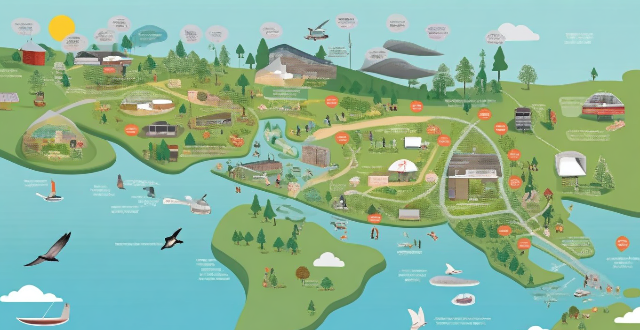
How do extreme weather events affect global climate change ?
Extreme weather events, such as hurricanes, floods, droughts, and heatwaves, have a significant impact on global climate change. They can exacerbate existing climate conditions and contribute to the overall warming of the planet by increasing greenhouse gas emissions, affecting ecosystems and biodiversity, disrupting agriculture and food production, and impacting human health and well-being. It is essential that we work together to mitigate the effects of extreme weather events and address the root causes of climate change to ensure a sustainable future for all.
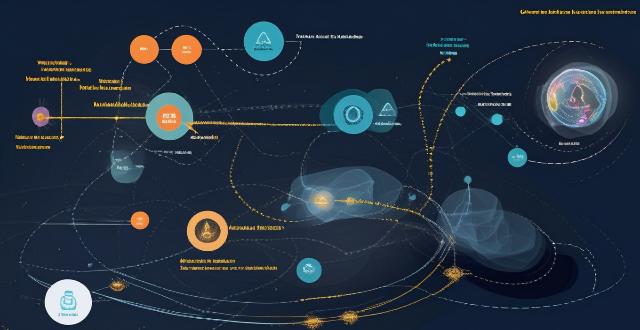
How has climate data analysis evolved over the past decade ?
Over the past decade, climate data analysis has seen significant advancements in various aspects, including improved data collection through advanced satellite technology and ground-based measurements, advanced modeling techniques such as complex climate models and data assimilation, enhanced computational power with supercomputers and cloud computing, big data analytics involving machine learning and AI, open data initiatives promoting public availability of data and collaborative platforms, and an interdisciplinary approach integrating multiple fields and engaging the public. These developments have revolutionized our understanding of the Earth's climate system and paved the way for more accurate and comprehensive climate research and policy-oriented decision support tools.

What are the main causes of extreme weather events ?
Extreme weather events, such as hurricanes, tornadoes, floods, and droughts, are caused by a combination of natural climate variability, human activities, and changes in the Earth's climate system. Natural climate variability includes phenomena like El Niño and La Niña, which can cause extreme weather conditions around the world. Human activities, such as greenhouse gas emissions, land use changes, and pollution, also play a significant role in causing extreme weather events. Changes in the Earth's climate system, such as sea level rise, ocean acidification, and changes in atmospheric circulation patterns, can also contribute to extreme weather events. Addressing both the underlying causes and implementing adaptation strategies is important to mitigate the impacts of these events.

How does the greenhouse effect affect weather patterns ?
The greenhouse effect is a natural process that maintains Earth's warm temperatures, making life possible. However, human activities like burning fossil fuels and deforestation have increased the concentration of greenhouse gases, leading to global warming. This enhanced greenhouse effect affects weather patterns by causing higher global temperatures, changes in precipitation patterns, extreme weather events, disruption of seasonal patterns, and changes in ocean currents. Addressing this issue requires reducing greenhouse gas emissions and adapting to the changing climate.
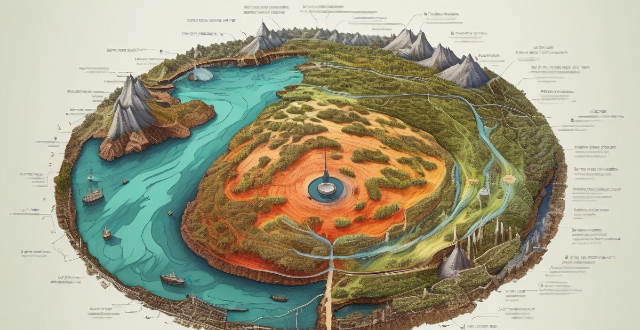
How do climate data analysis contribute to understanding global warming ?
Climate data analysis is essential for understanding global warming, its causes, effects, and potential solutions. Scientists collect temperature records, carbon dioxide concentrations, and sea level data to identify trends, establish correlations, and create predictive models. These efforts help develop effective strategies to mitigate the impacts of global warming.

How do extreme weather events relate to climate change ?
Extreme weather events, such as hurricanes, heatwaves, floods, and droughts, have become more frequent and intense in recent years due to climate change caused by human activities. Climate change leads to increased temperatures, changes in precipitation patterns, stronger storms, and impacts on ecosystems. Examples of extreme weather events linked to climate change include Hurricane Sandy, Australian Bushfires, European Heatwaves, and the Indian Ocean Dipole. It is crucial to take action to mitigate the effects of climate change and adapt to the changing climate.